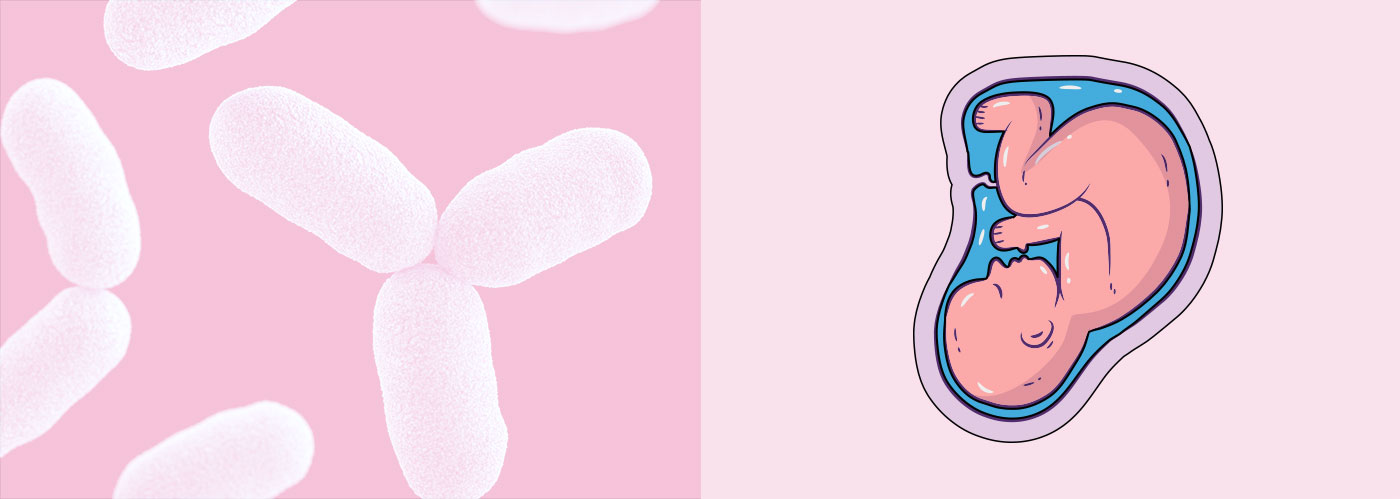On this special day meant for celebrating the mother in your life, there are countless things you can thank her for. On a biological level, however, there might be more to thank her for than you think! While she obviously passed her genes to you, she also passed on diverse bacteria that contribute to your gut health.
While itʼs certainly true that babies are born with a certain amount of bacteria that they are exposed to in utero, most of their microbiomes build up over time. The microorganisms they encounter during birth and the first few months have the greatest influence on the bacteria that become permanent residents in their guts.
Research is just beginning to highlight the important part that the infant microbiome plays on diverse aspects of an infant’s health, especially in a newborn’s immune and metabolic function. The microbes in the infant’s gut perform an integral role in the digestion and metabolism of food, the development and activation of the immune system, and the production of neurotransmitters that affect cognitive function and behavior.
If a baby is delivered vaginally, it receives a dose of bacteria from it’s mother as it passes through the birth canal. The baby is then covered in a microbial film that includes species that will help her digest its first meal.
During vaginal delivery, species such as Escherichia coli, Staphylococcus, and Streptococcus colonize the infant gut, and produce byproducts in the first few days of life that allow bacteria like Bacteroides and Bifidobacterium spp. to thrive in the infant gut.
In some cases, if a baby is born from a Cesarean section, parents can choose to inoculate the baby with a vaginal swab that has been colonized with bacteria from the vaginal canal. A piece of gauze incubates in the vagina for an hour prior to delivery, then is wiped over the mouth, face, and body of the infant after delivery in a process sometimes called “vaginal seeding.”
A Mother's breast milk can impact a baby's gut health
It’s not just the mother’s vaginal microbiome that is passed on to a newborn; important and beneficial bacteria are passed on through breast milk as well.
A University of Idaho study found that there are even important bacteria in breast milk, meaning that the guts of babies given formula may differ from those fed breast milk. At the time when this research began, many people didn’t believe that breast milk was a source of microbes in the infant gut.
Research, however, confirmed that the beneficial bacterial strains found in breast milk didn’t exist in the mouth or on the skin and were, in fact, finding their way into the infant gut. These beneficial bacteria found in a mother’s breast milk could play an important role in colonizing the baby’s gut microbiome with microbes that contribute to digestion and increased immune function.
Breast milk also contains prebiotics, in the form of oligosaccharides, which are sugars that promote the growth of specific microbial communities, including Bifidobacterium spp. Bifidobacteria in the infant's gut are important for promoting the infant’s immune responses, and defense against the growth of bad bacteria.
Research on how a mother’s vaginal microbiome impacts their infant’s microbiome throughout their life cycle is still ongoing, but one thing is for sure, bacteria from the maternal microbiome lays a foundation for a baby’s microbiome in the early stages of life.
So this Mother’s Day, make sure to give thanks to your mom for all she’s given to you, including the amazing gift of her bacteria which play a vital part in your health!
Be the first to hear about all things Kean Health,
get exclusive access, and get 35% off your first order!




